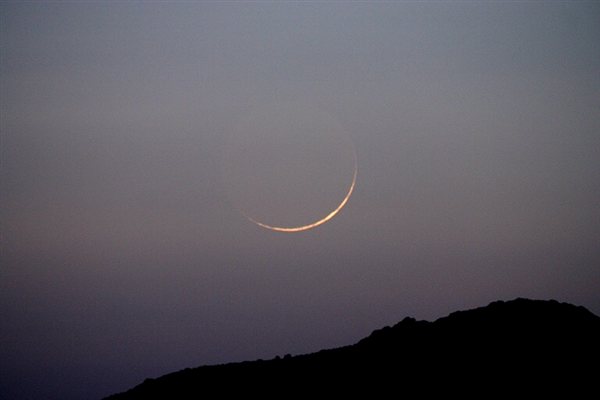This week, as we watch the moon narrow to a sliver, many
of us are aware that Rosh Hodesh Elul, the beginning of the month before Rosh
Hashanah, will fall on Tuesday and Wednesday. The month of Elul marks the end
of summer. It also calls us to prepare for the New Year. With the sounding of
the shofar each morning of Elul, we begin the season of repentance.
In light of this seasonal transition, this week’s
portion, Re’eh, invites us to begin to reflect on the meaning of our lives.
“See, I set before you today a blessing and a curse.” (Deut.11:26)
The word hayom
can mean this day, meaning the very
day that Moses was speaking to the Children of Israel. It can also mean today, a reminder that every single day
we make the choice between blessing and curse.
This phrase is echoed a few weeks later, just prior to
Rosh Hashanah in the portion Nitzavim,
where we read:
“See, I set before you today life and goodness, death and
hardship” (Deut.30:15) and “I have set before you blessing and curse; choose
life that you and your offspring may live.” (Deut. 30:19)
In case we need a nudge, the Torah urges us to choose
life, not death, blessing and not curse.
These verses divide our world into two stark choices, blessing and curse, life and death, goodness and hardship. Yet that is not the world we inhabit. Our choices are not always so clear. Our values sometimes conflict. What appears to be a blessing may turn into a curse, and vice versa.
The Vilna Gaon, understanding that these dilemmas can
paralyze us, taught that the answer lies in the verse itself: “I have set
before you.” He teaches that if we wonder “’How am I to know which path is good
and which is not?’ The answer is ‘before you.’” Our problem is often that we do
not take the time to truly examine which path to take. Instead we blaze ahead
out of desire or urgency or fear, without really choosing at all. The answer is
“before you”: in front of your eyes, if you take the time to look.
Torah is an important guide, says the Vilna Gaon. As
Rabbi Akiva taught, study leads to action. Through practice we can learn to
distinguish when we are following a path for our own self-interest and when we
have chosen what is truly right. Through experience, and paying attention to
our own inner thoughts, we can develop the sensitivity to recognize the good
path, the path of blessing.
The portion continues with the admonition, “blessing, if
you obey the commandments…and curse, if you do not obey.” However this
translation does not accurately reflect the nuance of the Hebrew. Blessing
occurs, not if, but ka’asher/when you
obey. Curses come im/if you do not
obey. The commentators explain that the blessing is part of the experience, when you do the mitzvah, while the curse
comes as a result of our disobedience, if
you disobey.
If the blessing is part of the experience itself, we
might wonder what constitutes the blessing?
According to Rabbi Levi Yitzhak of Berdichev,
“even now in your lifetimes, when you fulfill the
commandments of the Creator you will receive a blessing in this world.
Scripture then goes on to say what that blessing is as the verse continues, ‘when
you obey.’ This very fact, that you obey Me and do My mitzvot, this itself
will be a blessing, since there is no greater delight than this. Thus, the
reward for a mitzvah is the mitzvah itself.” (quoted in A Partner inHoliness, by Rabbi Jonathan Slater) Rather than do mitzvot to receive some
compensation, whether in this life or in the World to Come, Levi Yitzhak is
inviting us to open our eyes to the blessing, and even the joy, embedded in the
act itself.
Many of us know that feeling that comes from doing what
is right. I’ve witnessed this truth while working with students for their bar
or bat mitzvah. If they struggle with the Hebrew, or prefer to play basketball
rather than practice their chanting, if they find the preparation confusing or
boring, all of that changes on the day of their ceremony. While leading the
congregation on the bimah, most students suddenly realize the blessing that
comes from all of their effort. While they thought they were doing it for the
party or the gifts, they understand in their souls that the greatest blessing
was in achieving this moment.
Though we may resist following orders, though we may be
reluctant to stick our necks out, though the task may seem burdensome or
tedious, when we get down to it, doing what is right feels good. The blessing
can be found in that very moment, when
we act.
One word that repeats throughout this portion may give us
another clue to where to find the blessing. In Re’eh, the Torah instructs us seven times: v’samachta / you will rejoice. (Deut. 12:7,12,18, 14:26, 16:11,14,
15) In each instance, we have a particular mitzvah to fulfill, and the Torah
insists that it be done with joy. Likewise, Psalm 100 encourages us to “serve
the Holy One with joy.”
I know people who cheerfully do whatever is asked of
them. They get pleasure from helping others. Without complaint and with a
smile, they do what needs to be done. These individuals are my inspiration. Here,
the Torah encourages us to do what we are called to do with joy. In that act,
we will find the blessing.
As we enter into the month of Elul on our journey toward
Rosh Hashanah and Yom Kippur, may we choose blessing, today and every day, and
do it with joy.
published in The Jewish Advocate, August 22, 2014


No comments:
Post a Comment